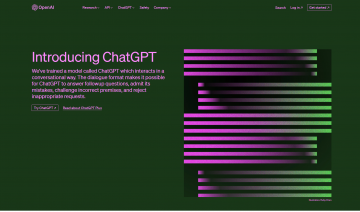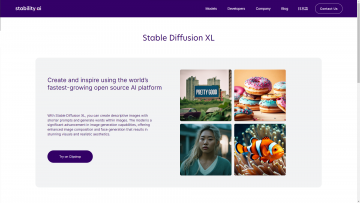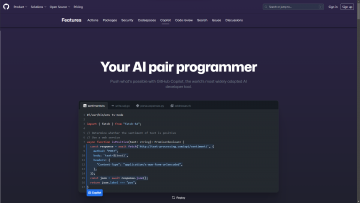Training
If you have a resource you would like to see featured, email us at ubc.cio@ubc.ca
- Microsoft – AI Learning HubBegin your AI learning journey with these curated Plans and resources, designed to support business and technical roles, individuals, and organizations in building AI skills.
- Generative AI Vs. Agentic AI: The Key Differences Everyone Needs To KnowArtificial intelligence (AI) has become the buzzword of our time. It’s a term that often conjures images of robots and self-learning machines, but in reality, AI is a broad umbrella with many distinct subfields.
- Prompt Engineering for ChatGPTThe course will show examples of how you can tap into generative AI tools’ emergent intelligence and reasoning, how you can use them to be more productive, and give you insight into how they work.
- Integrating Generative AI into the Creative ProcessFor creatives, artificial intelligence can’t do your job for you—nor should you want it to. However, proper use of AI can help you jumpstart your…
- Generative AI for beginners – A 12 lesson course Microsoft has created and made freely available a 12 lesson AI course for beginners.
- Generative AI vs. Traditional AILearning tool that assists with grasping a fuller understanding of the differences between traditional and generative AI
- Generative AI in Higher Education – Free KCL Online CourseKCL is offering a self-paced online short course designed for anyone with an interest in higher education who would like to learn about generative AI and its impact on the sector.
- LinkedIn Learning at UBCLinkedIn Learning is offering a number of courses on topics such as Generative AI, prompt engineering, AI trends, and more. For those looking to develop their skills in AI, these expert-led courses can help.
- Extended Learning UBC is offering courses on the topics of artificial intelligence and machine learning. Consider registering for a chance to educate yourself on the latest in AI whilst achieving certification: – Artificial Intelligence in Digital Media – Artificial Intelligence Cloud Solutions Strategy – Introduction to Machine Learning
- GartnerAccess open only to UBC students, faculty, staff and on-site Library users (other restrictions may apply) Gartner, Inc. is the world’s leading information technology research and advisory company delivering the technology-related insight necessary for their clients to make the right decisions, every day.
Tools
UBC does not endorse the use of any of the tools described here. The tools here are listed for informational purposes only.*
*Please note: The BC Freedom of Information and Protection of Privacy Act mandates a PIA for all University tools and initiatives involving personal information. Currently, the University does not have comprehensive insight into the privacy implications associated with these tools, and this understanding could change based on the findings of a report from BC’s Privacy Commissioner. Interim privacy guidelines will soon be provided by UBC’s Privacy Matters. In general, utilization of these tools should not be mandatory unless their usage can guarantee the non-disclosure of personal, sensitive, high-risk, or confidential information.
- ChatGPT 4.0
ChatGPT is an AI language model, designed to process and generate human-like text, assisting with diverse academic tasks and communication.
Find more information on using ChatGPT on UBC’s Academic Integrity website
- Stability AI (Stable Diffusion)
Stable Diffusion is a deep learning, text-to-image model released in 2022 based on diffusion techniques. It is primarily used to generate detailed images conditioned on text descriptions.
- DALL- E 2
OpenAI’s image text to image bot is a paid service. Previously it was free for those who registered before April 6, 2023.
- Github Copilot
Trained on billions of lines of code, GitHub Copilot turns natural language prompts into coding suggestions across dozens of languages. It suggests code and functions in real time based on context in comments and previous code.
For a more extensive list of commonly used generative AI tools, visit the UBC’s Centre for Teaching and Learning Technology website at https://ai.ctlt.ubc.ca/tools/
Prompt Literacy
What is Prompt Literacy?
Prompt Literacy is your key to effectively communicating with AI models. It involves crafting clear and precise instructions, known as prompts, to generate specific outputs from AI. Here’s what you need to know:
The Basics of Prompts
- A prompt is a written or spoken input that you give to an AI model.
- Think of it as a question, statement, or command that guides the AI’s response.
- Prompts can be short or long, depending on your needs.
Why is Prompt Literacy Important?
Understanding prompt literacy is essential for several reasons:
- Control and Precision
- With proper prompts, you have greater control over what the AI generates.
- It helps you get specific and relevant results, tailored to your needs.
- Productivity Increase
- Prompt literacy saves time by allowing you to quickly obtain the information or content you require.
- It reduces the need for complex programming or coding skills.
Crafting Effective Prompts
To make the most of generative AI, you will need to create prompts that produce the results you want. Here are some tips:
- Be Clear and Specific
- Clearly state your objective in the prompt.
- Specify the format or style you want the content in.
- Experiment and Refine
- Don’t be afraid to experiment with different prompts to see what works best.
- Refine your prompts based on the results you receive.
- Context Matters
- Consider the context of your prompt, as AI models understand context to generate relevant responses.
- Provide context or background information when necessary.













